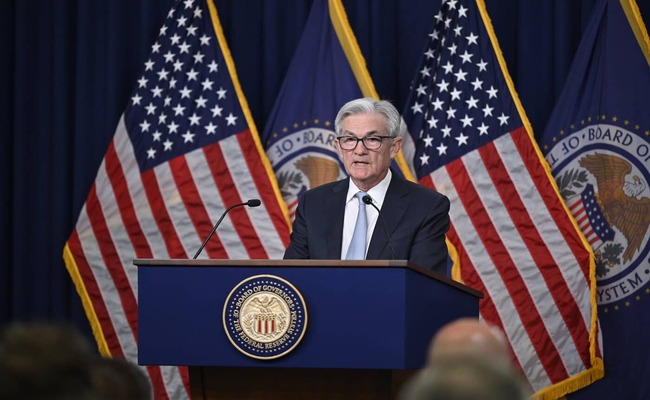Highlights:
- The Federal Reserve has removed a key term used in bank oversight.
- The new rules allow banks to engage in crypto services if they manage legal credit and liquidity risks properly.
- Cynthia Lummis noted that the removal would support American digital asset companies.
The Federal Reserve Board on June 23 removed reputational risk from its supervision manuals. It directed examiners to delete the term and focus only on financial exposure that can be measured. This change brings the Fed in line with the Office of the Comptroller of the Currency and the FDIC. Both agencies had already removed the same criterion from their bank examination programs earlier this year. Together, the three agencies oversee every federally insured bank in the United States.
@federalreserve announces that reputational risk will no longer be a component of examination programs in its supervision of banks: https://t.co/7Gwn1UuyNx
— Federal Reserve (@federalreserve) June 23, 2025
This coordinated shift eliminates a subjective standard that examiners used to deny services to digital asset companies. Many banks had avoided offering services like buying or selling Bitcoin due to the risks tied to reputation-based reviews.
Under the updated policy, examiners must now assess only legal, credit, or liquidity risks. The Federal Reserve will train its staff to apply the changes consistently and will coordinate efforts with the FDIC and OCC to maintain uniform standards across all agencies.
New Guidance Opens Path for Crypto Services in Banking
The removal of reputational risk makes it easier for banks to work with firms that offer crypto services. Although banks must still uphold strong risk management, they now have more flexibility. The Federal Reserve clarified that reputational concerns should only be addressed if they lead to specific financial problems. This clearance gives banks an opportunity to cater to the crypto industry without a sense of ambiguity in regulatory principles.
Jerome Powell, chair, had hinted at this change during an April speech to the Economic Club of Chicago. He said the Fed does not aim to interfere with lawful relationships between banks and digital asset companies. Powell added that banks under Fed supervision already provide crypto custody services. He said the Fed will continue to protect the financial system while allowing responsible activity in the digital asset space.
Earlier this year, Powell testified before Congress and confirmed that banks can manage digital assets if they meet capital and liquidity requirements. In that testimony, he also noted that existing rules permit banks to engage with crypto services if they address operational risks. The recent progress of the GENIUS Act, which passed the Senate on June 17, may also help create clearer laws.
Critics and Industry Voices Respond to Federal Reserve Policy Shift
Some industry voices welcomed the change. Senator Cynthia Lummis criticized the previous rules and said the removal would support American digital asset companies. Rob Nichols, the head of the American Bankers Association, supported the Fed’s move and said it would make supervision more consistent. He added that banks should rely on market principles and manage risk without pressure from individual examiners.
In February, I exposed the Fed’s aggressive reputation risk policies that assassinated American bitcoin & digital asset businesses.
Today, the Fed announced it will scrap reputation risk as a factor in its bank supervision. This is a win, but there is still more work to be done. https://t.co/AOZSr0IFcp pic.twitter.com/1FtsIcNJsI— Senator Cynthia Lummis (@SenLummis) June 23, 2025
Despite the support, some critics raised concerns about dropping non-financial factors from bank evaluations. They warned that this change could allow riskier behavior to go unchecked. However, the Fed clarified that banks may still include reputational risk in their own risk management systems if they choose. The OCC and FDIC had already confirmed that banks can engage in crypto activities and even outsource services without prior approval.
Best Crypto Exchange
- Over 90 top cryptos to trade
- Regulated by top-tier entities
- User-friendly trading app
- 30+ million users
eToro is a multi-asset investment platform. The value of your investments may go up or down. Your capital is at risk. Don’t invest unless you’re prepared to lose all the money you invest. This is a high-risk investment, and you should not expect to be protected if something goes wrong.






